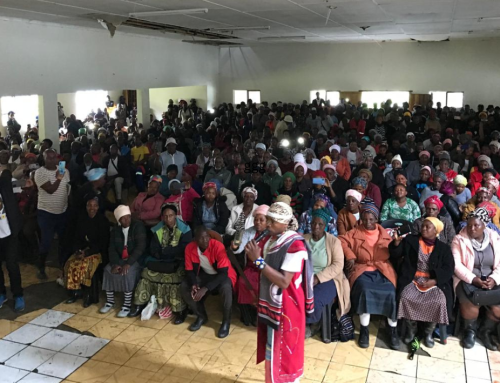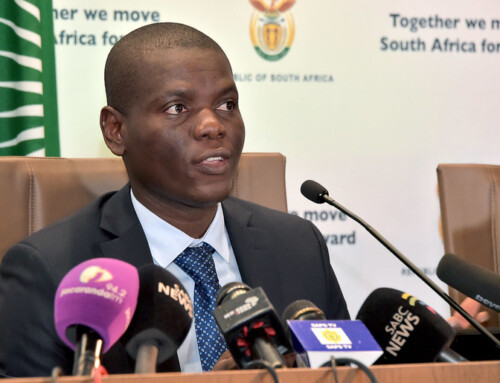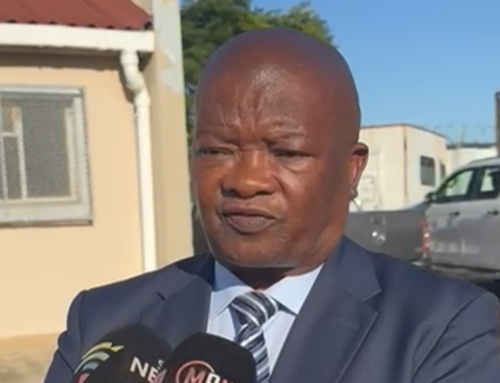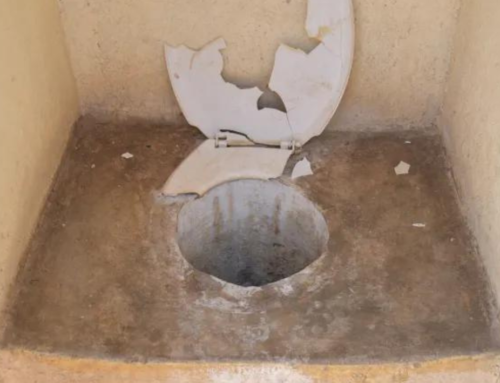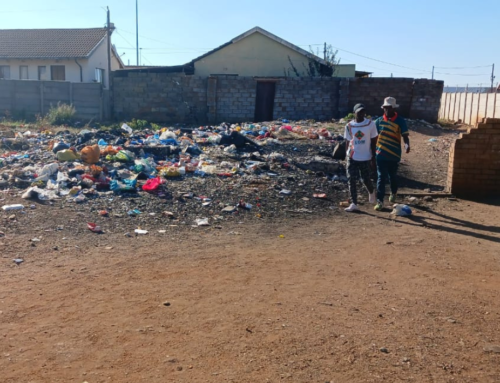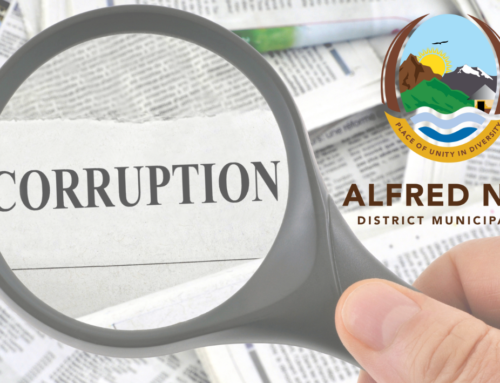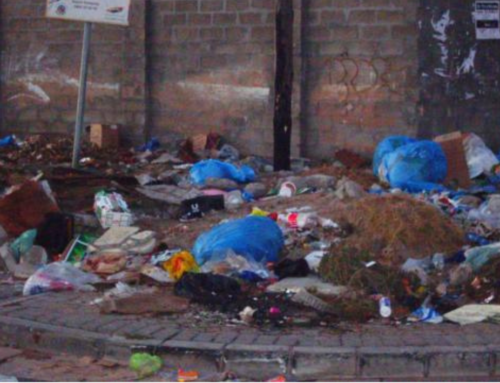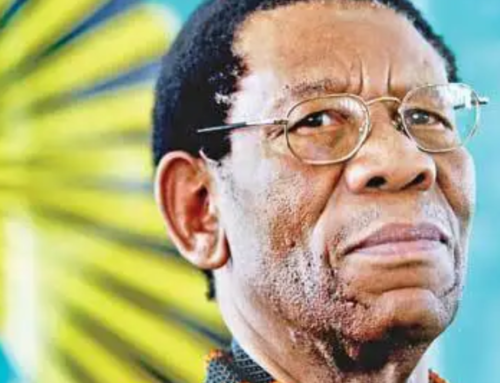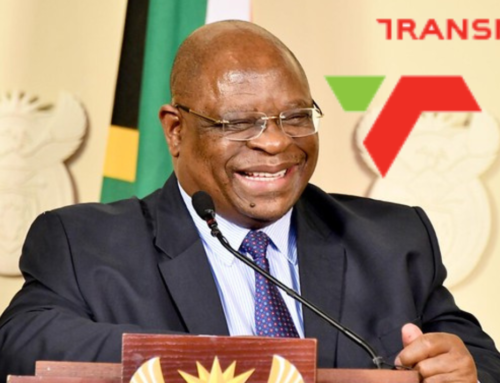 Mr Enoch Godongwana
Mr Enoch Godongwana
Minister of Finance
PO Box 29
Cape Town
8000
and
Mr Mkhuleko Hlengwa
Standing Committee on Public Accounts
Parliament of the Republic of South Africa
PO Box 15
Cape Town
8000
and
Mr Abel Sithole
Chief Executive Officer
Public Investment Corporation
Private Bag X187
Pretoria
0001
and
Mr Musa Mabesa
Principal Executive Officer
Government Employee Pension Fund
Private Bag X63
Pretoria
0001
Dear Minister Godongwana, Mr Hlengwa, Mr Sithole and Mr Mabesa
Claim against the Public Investment Corporation of R1,35 trillion
1. I refer to my correspondence of 9 January 2023 and the responses I received, with thanks, on 13 January 2023 from Mr Abel Sithole, Chief Executive Officer of the Public Investment Corporation (PIC), and on 18 January 2023 from Mr Musa Mabesa, Principal Executive Officer of the Government Employees Pension Fund (GEPF).
2. It has come to my attention that there is a pending court case (Case number 2310/2020, in the matter between Karima Abdual Razak Tayob N.O. in her capacity as executrix of the estate of the late Abdul Razak Tayob Surtie, Edward Jeffrey Koornabanally and Public Investment Corporation Limited, Absa Group Limited) in the Western Cape High Court wherein a massive R1,35 trillion is being claimed for payment from the PIC -which has (amongst others) as its client the GEPF- as well as Absa Group Limited.
3. According to the court papers, in the PIC’s first affidavit, by Mr Abel Sithole on 25 January 2021, it is stated that:
“48. … the First Defendant is an asset management firm wholly owned by the Government of the Republic of South Africa, represented by the Minister of Finance. Its clients consist mostly of public sector entities, which focus on the provision of social security. Amongst these clients are the Government Employees Pension Fund, Unemployment Insurance Fund, Compensation Fund, Compensation Commissioner Pensione Fund, and Associated Institutions Pension Fund.
49. The First Defendant, at present, manages a portfolio of approximately R2, 199 trillion.
50. The Plaintiffs are seeking payment of R1.35 trillion. A judgement against the First Defendants for payment of the astonishing amount of R1.35 trillion will undoubtedly have a detrimental effect on the entire investment portfolio managed by the First Defendant, the effects of which will felt not only by the public sector entities but the individuals who pensions lie with these entities. At the back of the devastating economic effects of the Covid-19 pandemic, it would not be an exaggeration to say that the fiscus would be significantly depleted by the success of this claim and the national economy would suffer.”
4. In the Supplementary Replying Affidavit of 7 March 2021, Donovan Sam states that:
12. Similarly, it is misleading to only make reference of the R2,199 trillion investment portfolios managed by the First Defendant and exclude other unlisted assets and numerous shareholdings.
13. I submit that the First Defendant has much more assets which are unlisted which goes via its investment arm ISIBAYA FUNDS, which consist of unlisted real estate properties, unlisted private equity, unlisted investments in Africa, the South African mining sector, telecommunications sector and SMEs (small and medium-sized enterprises) not to mention the multiple shares First Defendant holds in many Corporates worth hundreds of billions of Rands, here are just a few:
13.1. ABSA – 22% (increased after Barclays undertook to decrease their shareholding in RSA 2017)
13.2. African Bank – 25%
13.3. Remgro – 13,6%
13.4. Bidvest – 16,7%
13.5. FNB Bank – 14%
13.6. RMB Bank – 10%
13.7. lnvestec Bank – 8,5%
13.9. Nedbank – 10,7%
13.10. Metropolitan – 12,1%
13.11. MTN – 26%
13.12 Vodacom – 13,9%
13.13. Telkom – 12%
13.14. Aradel Capital – 13%
AD PARAGRAPH 50 and 51
14. The content of these paragraphs are vehemently denied. This is clearly an attempt by First Defendant to mislead and deceive this Honourable Court in order to seek sympathy.
15. ln response to these attempts by First Respondent, I submit that Bonds R150, R’153 were issued in retrospect (1985 -201 1 while first registration was in 1989) in terms of Section 19(1)(b) of the Exchequer Act, 1975, (Act 66 of 1975) and in terms of Section 21a(2)(b) of the Constitution of the Republic of South Africa, 1996 (Act 108 of 1996) and in terms Section 20 of the Exchequer Act – the repayment of the capital amount and the interest thereon shall be a direct charge against the National Revenue Fund and is deemed to have been appropriated by Law. See annexures “DS8” and “DS9” hereto respectively.
16. The word Appropriation (appropriated) referred to in the preceding paragraph is defined as an act of setting aside money for a specific purpose. ln law and government, appropriation is the act of setting apart something for its application to a particular usage, to the exclusion of all other uses. ln constitutional law, appropriation is the assignment of money for a special purpose- Lastly, in the law of debtor and creditor, appropriation of payments is the application of a particular payment for the purpose of paying a particular debt.
17. Thus, I submit that the debt to the Plaintiffs which was fully appropriated in law from 1985-2011 cannot have any effect to the current fiscal, national economy, banking system, or national currency.
18. The settlement thereof will be a non-expenditure item, while being a balance sheet transaction which can be done through appropriation processes. This further entails that the appropriation account will be debited and the revenue account credited. This accounting principle remains the same whether the appropriations is done from National or the First Defendant’s revenue account.
19. I submit further, that while the claimed amount may have some effect on the First Defendant, it must be born in mind that the latter has benefited close to the total of the claimed amount in interest gained from further investment of same from 2011 to date which does not form part of Plaintiff’s claim.
20. This is over and above the investment capital amount of R87.84 billion invested in Government Bonds at coupon rate of 12/13% which is in excess of R2.5 trillion by 2011. The Plaintiffs have furthermore claimed limited interest on these bonds equal to the guardian’s fund rate at an average of approximately 6-7.5% and not the rate of 12/13%.
AD PARAGRAPH 54
21. The content of this paragraph is denied for reasons set out in annexure “DS10” hereto.
CONCLUSION
22. ln the premise I submit that a proper case has been made out and ask for an order as claimed in.
5. In light of the above and despite the assurances given in January’s correspondences there appears to be persistent evidence that the PIC and its funds (and therefor that of the GEPF and other government social security providing entities) are under threat.
6. Government employees and pensioners have a right to know what the risk is to their pensions should the court rule in favour of plaintiffs in this case – even if it is just a portion of the claimed amount. What are the guarantees that the PIC can give that government employees and pensioners’ funds are safe from this threat?
7. We, herewith also request that the Standing Committee on Public Accounts, demands a thorough briefing on the entire matter and establish what steps are to, or have been taken, to safeguard the government employees and pensioners’, and other, funds.
Yours sincerely
Mr Bantu Holomisa, MP
President of the United Democratic Movement
Copied to: Mr MC Ramaphosa, President of the Republic of South Africa
Adv MR Ramabulana, Government Employees Pension Ombud
Prof S Fikeni, Chairperson of the Public Service Commission of South Africa
Committee representing pensioners’ groups and associations
Pensioners’ groups and associations



